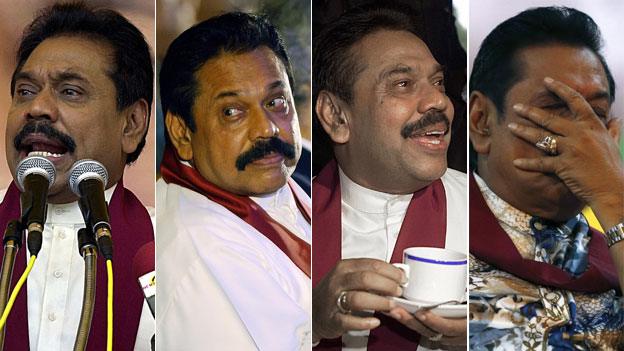Is Sri Lanka's Rajapaksa making a comeback?
- Published
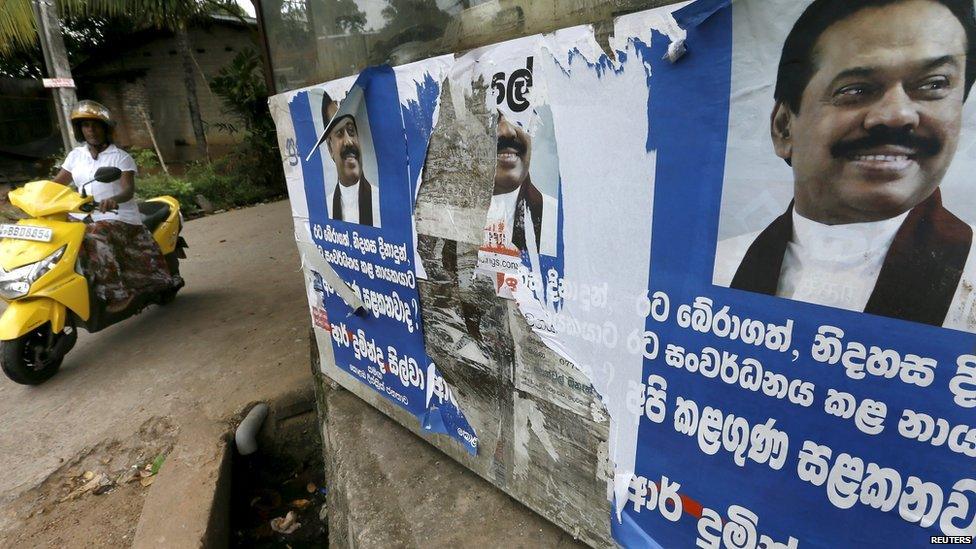
Sri Lanka votes in parliamentary elections on 17 August, with two major contenders for prime minister - current PM Ranil Wickramasinghe and defeated former President Mahinda Rajapaksa.
Mr Rajapaksa is standing as a candidate - despite his successor as president, Maithripala Sirisena, attempting to stop him from running.
Mr Sirisena had unseated his rival in a surprise victory in January's presidential polls - but now there is talk of Mr Rajapaksa making a comeback. BBC Sinhala's Azzam Ameen looks at what is going on.
Could ex-President Rajapaksa become prime minister?
He seems to think so.
Mr Rajapaksa, who is running as a candidate for the UPFA (United People's Freedom Alliance) in Kurunegala, Sri Lanka's third-largest electoral district, has vowed to storm back to power in these elections.
He is still popular among the majority Sinhalese, many of whom remember that he was in charge when the army defeated Tamil separatists to end years of bloody civil war.
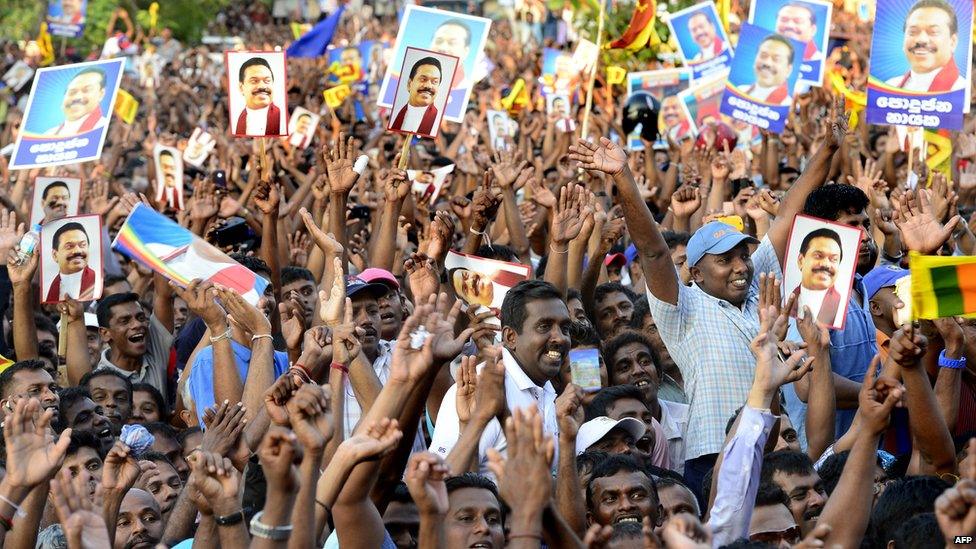
Many would be happy to see Mr Rajapaksa become prime minister
If he wins by a large margin, and the UPFA secure an outright majority, President Sirisena (who leads the UPFA) could be forced to name him prime minister - putting the two rivals in an uneasy cohabitation.
In an interview with the BBC's Saroj Pathirana, Mr Rajapaksa said: "Clearly we'd secure 117 seats."
Is that likely?
Despite Mr Rajapaksa's high profile, many experts believe that both the UPFA, and Mr Wickramasinghe's UNP (United National Party) will struggle to gain an outright majority in the 225-member parliament.
Correspondents say that a hung parliament would favour the UNP because they have a better relationship with two smaller parties - the Tamil National Alliance and the leftist JVP (Janatha Vimukthi Peramuna) - which could allow them to form a coalition.
Failing to gain the numbers needed to become PM could leave Mr Rajapaksa humiliated on the opposition benches, playing little more than a spoiler role.
But if Mr Rajapaksa wins, the reforms Mr Sirisena has attempted to introduce could stall.
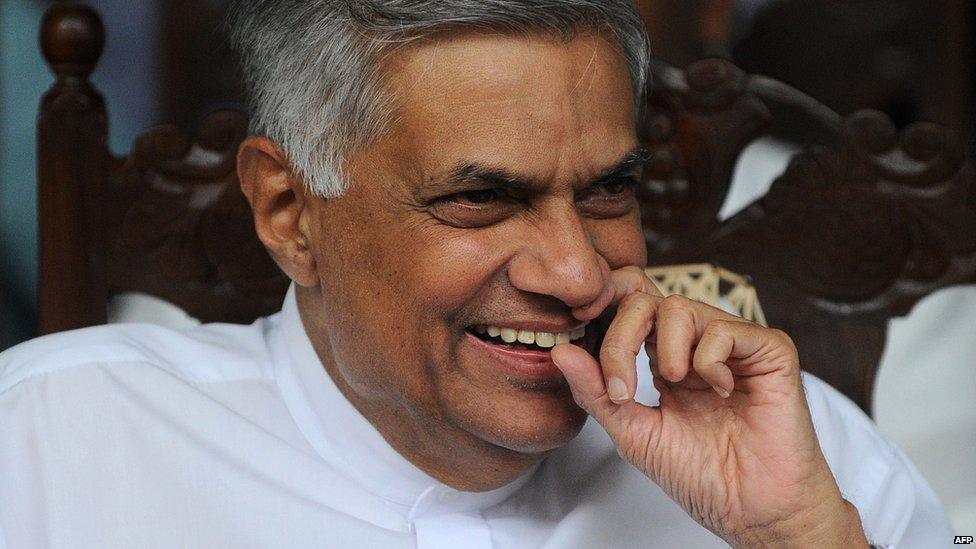
The UNP, led by Ranil Wickramasinghe, may be better placed to form a coalition with smaller parties
What's the history behind Sirisena and Rajapaksa?
Mr Sirisena was once one of Mr Rajapaksa's closest allies, and previously served as Mr Rajapaksa's health minister.
But he ran against Mr Rajapaksa in January's presidential elections, with the backing of several other political groups, including the main opposition UNP, who wanted to prevent Mr Rajapaksa from gaining a third term.
He also appeals to many members of Sri Lanka's Tamil, Muslim and Christian minorities who had felt increasingly marginalised under the Rajapaksa presidency.
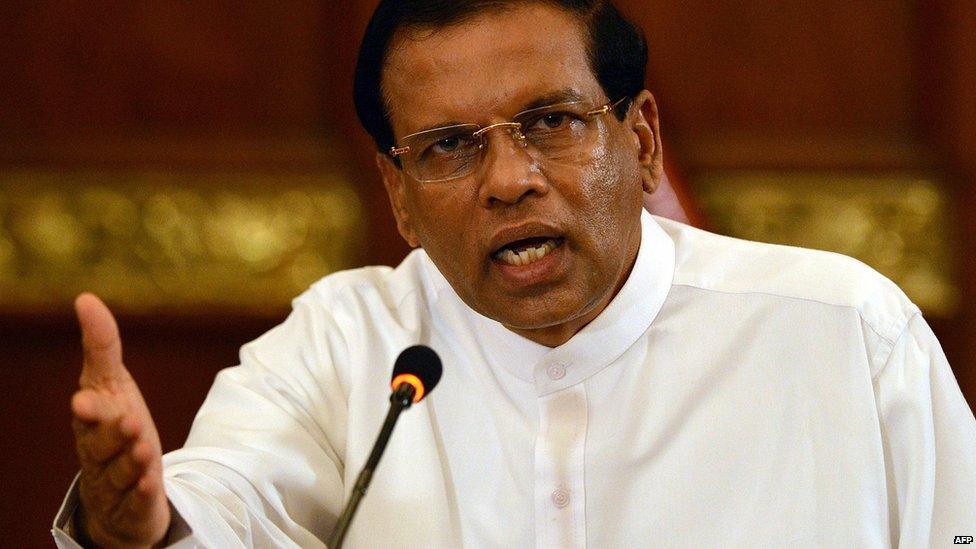
President Sirisena predicts Mr Rajapaksa will lose the poll
Following his victory, Mr Sirisena took over the leadership of the UPFA, while UNP leader Ranil Wickramasinghe took the role of prime minister.
However, since becoming president, Mr Sirisena has struggled to consolidate his position within his own party - which is filled with politicians still loyal to Mr Rajapaksa.
Eventually, he succumbed to pressure from his own party to grant Mr Rajapaksa the nomination to stand for the UPFA in August's elections.
He declined to name his rival as the party's prime ministerial hopeful, but Rajapaksa loyalists are confident their man can lay claim to the position if he and his supporters win by big margins in the polls.
Has Sirisena sold out?
Creating space for a political comeback by Mr Rajapaksa has irked many who voted for Mr Sirisena in January. They have called the move a "betrayal" of the mandate he obtained to defeat a man many saw as increasingly autocratic.
"He betrayed us, we never expected him to join Rajapaksa and bring back the corrupt Rajapaksa regime we defeated," civil activist Saman Rathnapriya told BBC Sinhala.
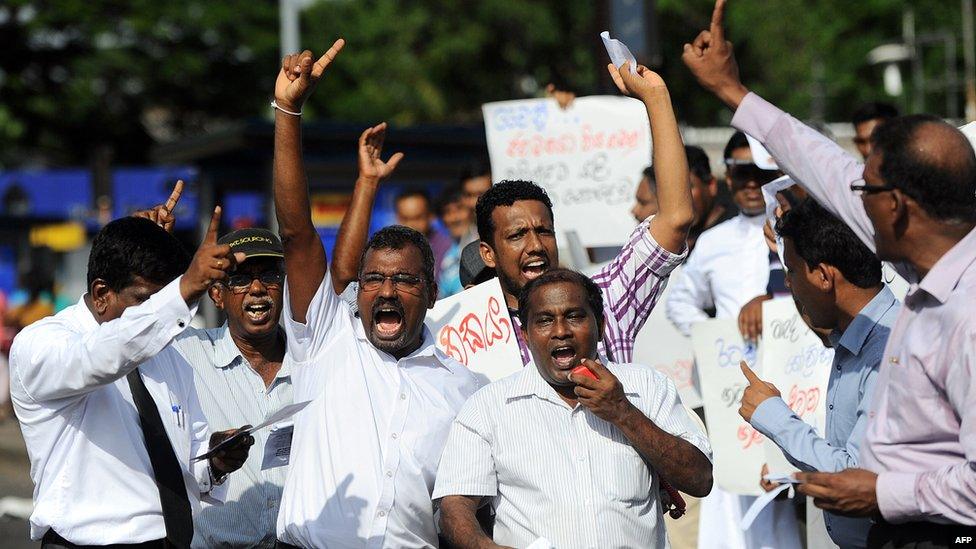
Many are angered by Mr Rajapaksa's return to politics
"6.2 million people voted against Rajapaksa - not for Sirisena as a person. He has destroyed all our hopes," an angry Mr Rathnapriya said after talks aimed at denying Mr Rajapaksa the party nomination failed last week.
President Sirisena had promised not to betray the silent revolution of 8 January or to permit the restoration of one-family rule in Sri Lanka.
But after a week's silence, he addressed the nation on 14 July, predicting his rival would lose in August.
"Mahinda Rajapaksa who was defeated on 8 January will be defeated again," President Sirisena said. "I don't need to read the stars to know that, the future can be predicted based on history."
He appeared wounded by the public outrage he has faced.
"No other president has been attacked the way I have in the past two weeks - they called me a traitor and a brute. Today you are tasting the fruits of democracy," Mr Sirisena told reporters.
Late in the campaign Sri Lankan media reported, external that Mr Sirisena had sent Mr Rajapaksa a letter saying that he would refuse to name him prime minister, even if he won the election.
Mr Sirisena is quoted as saying he did not approve of Mr Rajapaksa seeking to be prime minister after having been president for years.
What's the campaign been like so far?
The election campaigns have been relatively peaceful so far - with the exception of a shooting at a UNP campaign rally that killed one woman and injured 12.
Political campaigns will continue up to 14 August, before campaigning restrictions kick in.
Results are expected the day after the elections, on 18 August.
- Published6 August 2015
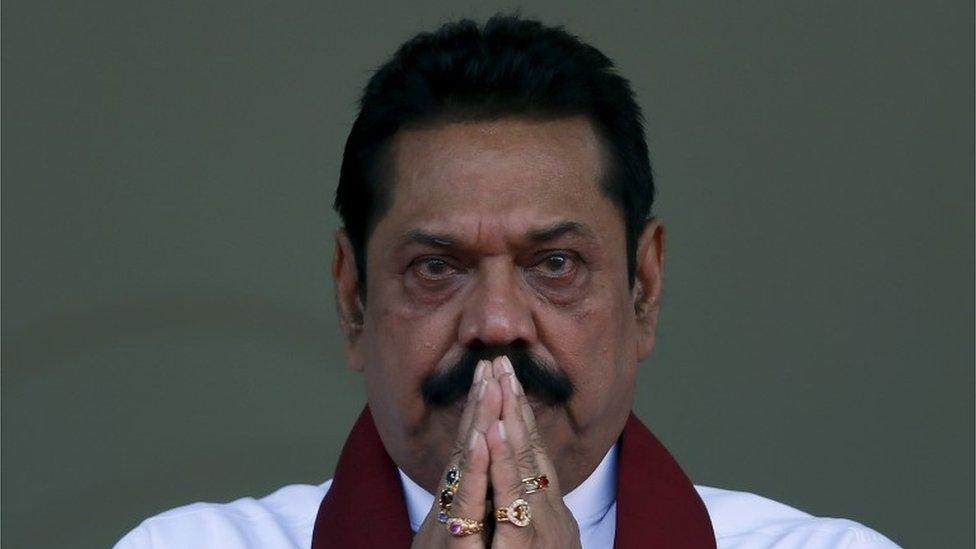
- Published1 July 2015
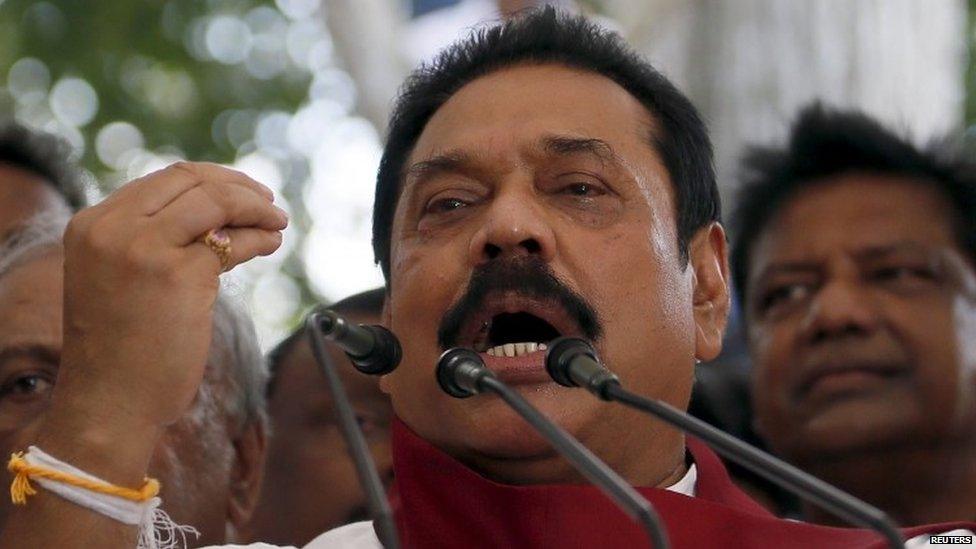
- Published26 June 2015
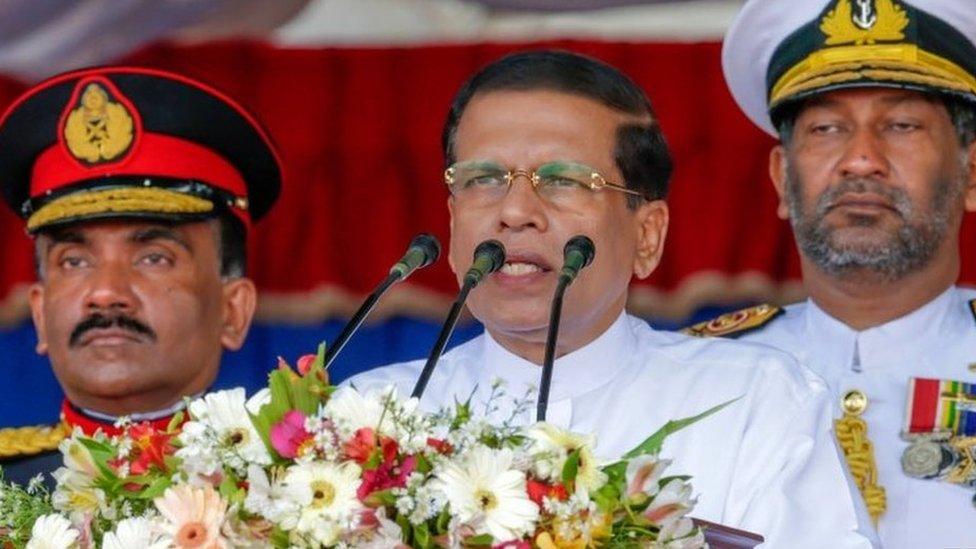
- Published14 August 2015
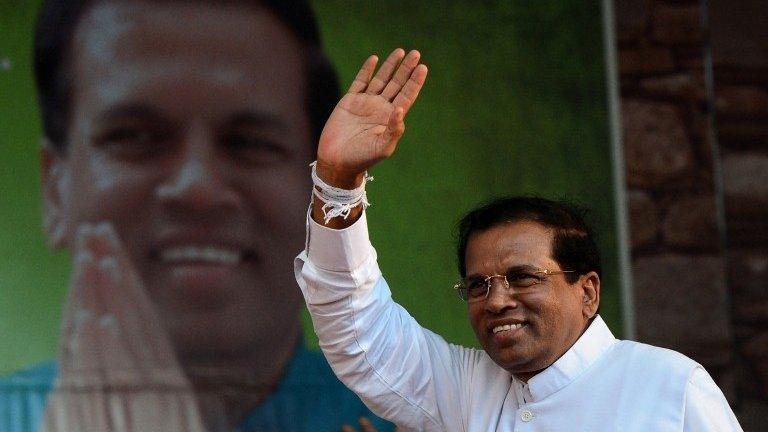
- Published21 November 2019
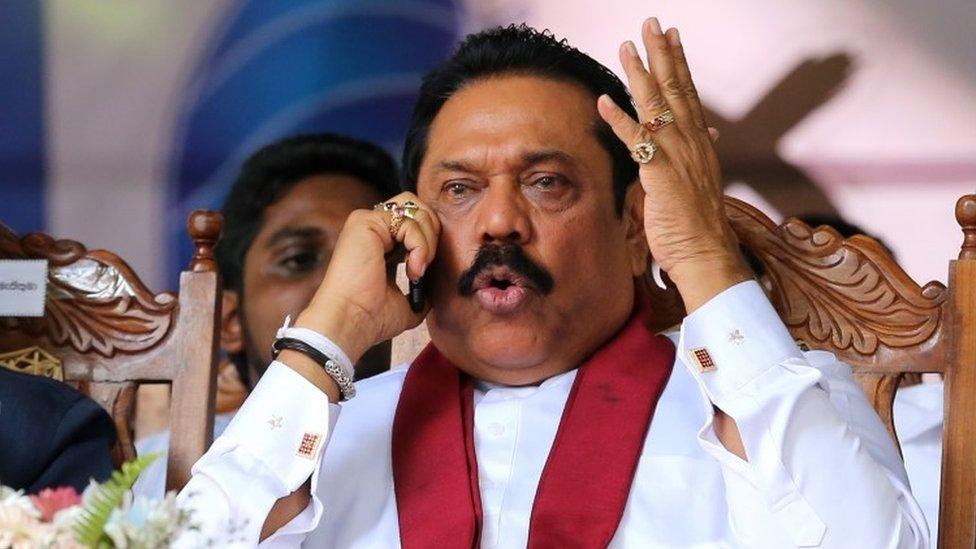
- Published9 January 2015
